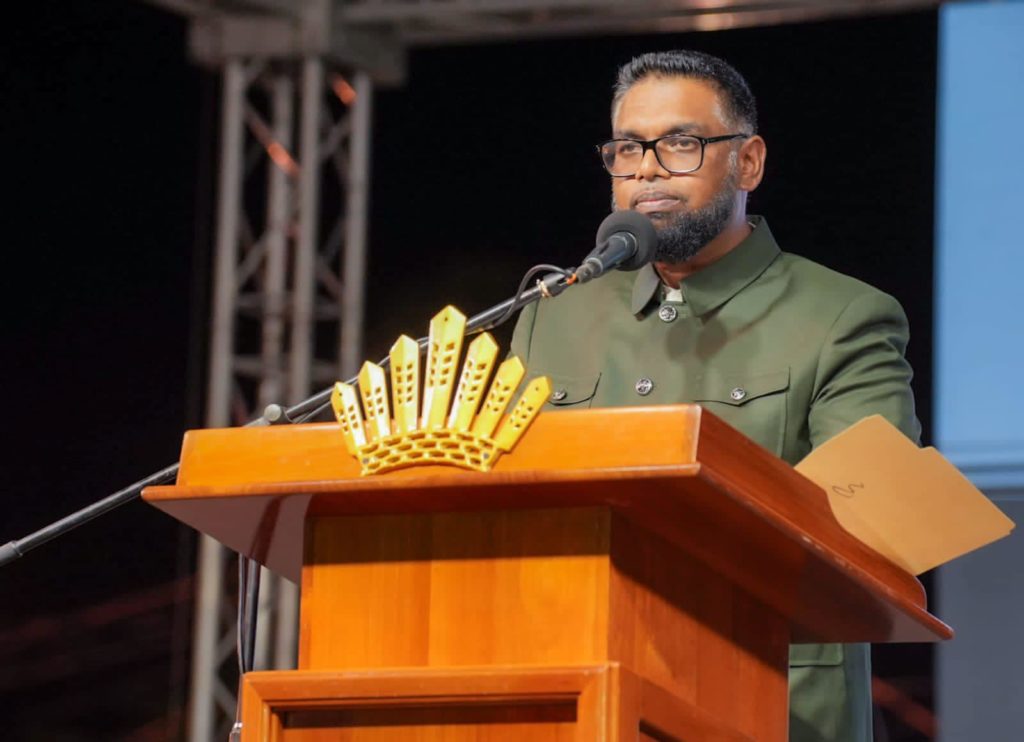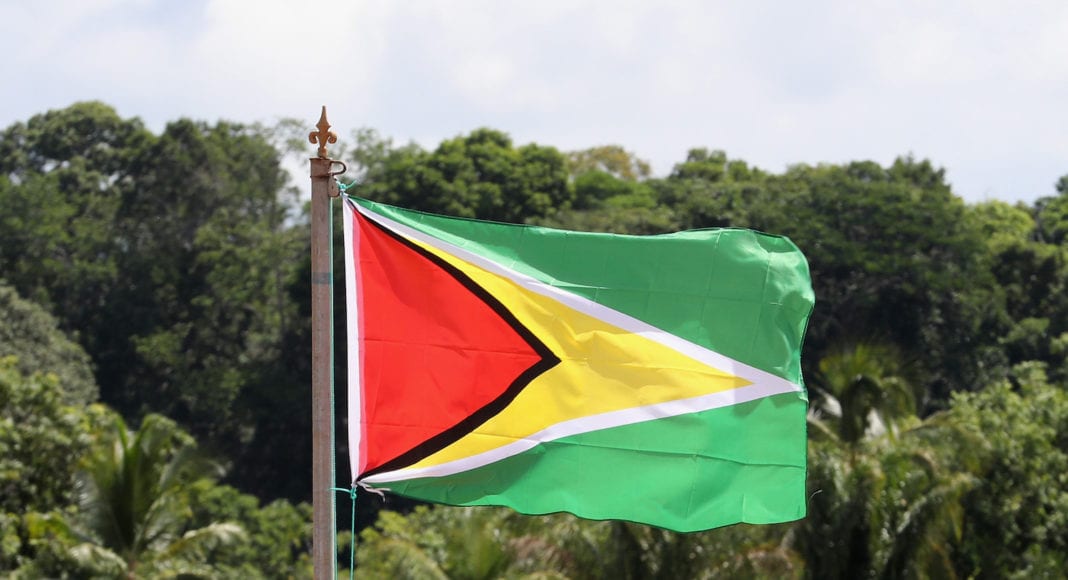President Irfaan Ali on Tuesday said Guyana remains “83,000 square miles proud and strong, unshakable, unbreakable,” as Venezuela pushes ahead with plans to stage elections in the disputed Essequibo region.
“We are respectful of international order, international rule of law,” Ali stated. “We continue to ask all residents to be proud of our heritage… knowing that not one inch would be ceded.”
He said Guyana will continue defending its territorial integrity on three main fronts: diplomacy, defense, and international partnerships. “…We have always pursued our diplomacy… with our neighbors, regional leaders, the region itself, the entire CELAC region, and [the] international community,” Ali said.

The president said the government is also “strengthening our whole defense system… ensuring that we have the best capability in terms of protecting our sovereignty and territorial integrity.”
Ali said the Guyanese embassy in Caracas is actively asserting the country’s position.
“Our instructions to the ambassador and the embassy there [are] to ensure that Guyana’s sovereignty, territorial integrity and our position is well known to all stakeholders.”
Venezuela risks more sanctions if unlawful election is held in Essequibo this May – Greenidge
He added that embassies serve not only as bilateral channels, but also as platforms to inform international colleagues of “what the truth is”.
The comments come days a week armed men in civilian clothing opened fire on Guyanese troops during routine patrols on the Cuyuni River. The attack reportedly came from the Venezuelan side. Ali declined to provide details but confirmed “work is going on behind the scenes… gathering intelligence… understanding more”.
He acknowledged the United States as “a very important partner” in addressing cross-border crime and regional security threats.
Venezuela is pushing ahead with the Essequibo vote despite a binding International Court of Justice (ICJ) order barring any unilateral actions in the disputed area.
The ICJ case centers on the 1899 Arbitral Award that established the boundary. Venezuela rejected that ruling in 1962 and now claims the Essequibo and parts of Guyana’s offshore oil-rich Stabroek Block.



